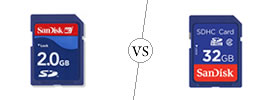Difference between Comparison and Difference
Key difference: Comparison and Difference are commonly used in relevance to two or more objects. However, when comparing something, two or more things are compared against each other. This means that one tries to find similarities between the objects. Whereas, differentiating some objects construes that one is trying to find differences, i.e. unlikeness or dissimilarities between the objects.

There is a bit of confusion among people’s minds regarding the terms, Comparison and Difference. People generally take these terms as granted, and use them haphazardly without really realizing the actual definition or usage of the words.
Dictionary.com defines Comparison as:
- The act of comparing.
- The state of being compared.
- A likening; illustration by similitude; comparative estimate or statement.
- Rhetoric. The considering of two things with regard to some characteristic that is common to both, as the likening of a hero to a lion in courage.
- Capability of being compared or likened.
- The function of an adverb or adjective that is used to indicate degrees of superiority or inferiority in quality, quantity, or intensity.
- The patterns of formation involved therein.
- The degrees of a particular word, displayed in a fixed order, as mild, milder, mildest, less mild, least mild.
Whereas, Difference is defined as:
- The state or relation of being different; dissimilarity: There is a great difference between the two.
- An instance or point of unlikeness or dissimilarity: What accounts for the differences in their behavior?
- A significant change in or effect on a situation: His tact makes a difference in the way people accept his suggestions.
- A distinguishing characteristic; distinctive quality, feature, etc.: The difference in the two products is quality.
- The degree to which one person or thing differs from another.
- The act of distinguishing; discrimination; distinction.
 Both the terms, Comparison and Difference are commonly used in relevance to two or more objects. However, there is a significant difference between how the terms are utilized. When comparing something, two or more things, objects or components are compared against each other. This means that one tries to find similarities between the objects. Whereas, differentiating some objects construes that one is trying to find differences, i.e. unlikeness or dissimilarities between the objects. While, both the terms pit objects against each other, the inference is quite different: one seeks to find similarities, while the other seeks dissimilarities.
Both the terms, Comparison and Difference are commonly used in relevance to two or more objects. However, there is a significant difference between how the terms are utilized. When comparing something, two or more things, objects or components are compared against each other. This means that one tries to find similarities between the objects. Whereas, differentiating some objects construes that one is trying to find differences, i.e. unlikeness or dissimilarities between the objects. While, both the terms pit objects against each other, the inference is quite different: one seeks to find similarities, while the other seeks dissimilarities.
Comparison between Comparison and Difference:
|
|
Comparison |
Difference |
|
Description |
To compare, i.e. find similarities between two or more objects. |
To differentiate, i.e. find dissimilarities between two or more objects. |
|
Type |
Noun |
Noun |
|
Inference |
To find similarities |
To find dissimilarities and unlikeness |
|
Examples |
|
|
Image Courtesy: lawnlights.com, us.educationcity.com









Add new comment